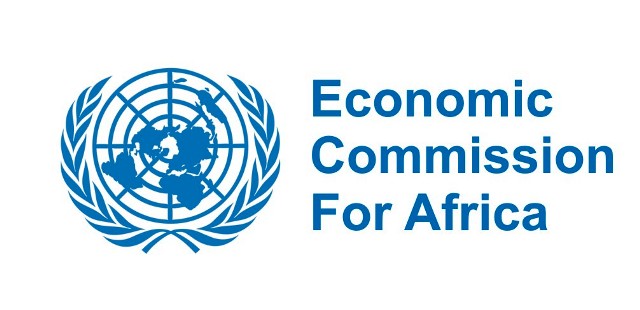Business
Centre Unveils Africa Data Revolution Report

The African Centre for Statistics, a department at the Economic Commission for Africa (ECA), says it has launched the first Africa Data Revolution Report (ADDR) 2016 edition.
A statement by the commission recently in Addis Ababa, Ethiopia on its website, said that it is a biennial report highlighting developments in African national data ecosystems.
It further said that the 2016 edition was the inaugural Africa Data Revolution Report.
According to it, the report is published by the ECA in collaboration with the United Nations Development Programme (UNDP), the Open Data for Development and the World Wide Web Foundation.
The first ADRR focuses on mapping the data ecosystem in Africa with reference to the production and distribution.
It also focuses on the use of data by public, private and civil society actors as they relate to the 17 United Nations Sustainable Development Goals (SDGs).
It draws from in-depth case studies of national data ecosystems in 10 African countries which include; Côte d’Ivoire, Ethiopia, Kenya, Madagascar, Nigeria, Rwanda, Senegal, South Africa, Swaziland and Tanzania.
Director, African Centre for Statistics, Mr. Oliver Chinganya said in the statement that the commission was very excited about the report.
He said that harnessing the ongoing data revolution in Africa was crucial to accelerating sustainable development on the continent, among many other things.
“There is definitely a need for us, as Africans, to boost the capacity of national data ecosystems fairly early in the implementation cycle of the SDGs.
“This is why the ECA and its partners have produced this report and will continue to do so,” he said.
He also said that the document would help readers to better understand the changing data landscape in Africa, the increasingly important role of various data communities and new technology.
The report identifies and describes key actors, communities and systems, their capacities, interactions and the ‘rules of the game’.
It also identifies the enabling environment, laws, regulations and principles that govern the production, dissemination and use of data in Africa.
According to the statement, empirical evidence is mounting, showing that data enables citizens to make more effective decisions in their daily lives and help entrepreneurs create new business opportunities.
It also said that data enables institutions to make the governing process more efficient, responsive, inclusive and transparent, making data an enabler of development.
According to it, the document goes beyond just being a tool for monitoring and evaluation.
The ADRR 2016 reviews seven key data communities in terms of their historical development, interaction with other data communities, strengths, limitations and showcases data innovations in Africa.
It also assesses the infrastructure requirements, the nature and impact of prevailing protocols governing data production on the continent.
Based on the analysis of data ecosystems in Africa, the ADRR identifies challenges to data revolution in the legal, legislative and policy frameworks or principles.
It is also identifies challenges associated with financial investments, technology and infrastructure, and data governance areas.
The statement also said that Africa countries were making considerable efforts to strengthen quality, accessibility and timeliness of data production and use.
This, it said, was being done by revitalising national statistical systems, open data policies and platforms, greater generation and use of non-government generated data, especially citizen and private sector-generated data.
Transport
Nigeria Rates 7th For Visa Application To France —–Schengen Visa

Transport
West Zone Aviation: Adibade Olaleye Sets For NANTA President

Business
Sugar Tax ‘ll Threaten Manufacturing Sector, Says CPPE

In a statement, the Chief Executive Officer, CPPE, Muda Yusuf, said while public health concerns such as diabetes and cardiovascular diseases deserve attention, imposing an additional sugar-specific tax was economically risky and poorly suited to Nigeria’s current realities of high inflation, weak consumer purchasing power and rising production costs.
According to him, manufacturers in the non-alcoholic beverage segment are already facing heavy fiscal and cost pressures.
“The proposition of a sugar-specific tax is misplaced, economically risky, and weakly supported by empirical evidence, especially when viewed against Nigeria’s prevailing structural and macroeconomic realities.
The CPPE boss noted that retail prices of many non-alcoholic beverages have risen by about 50 per cent over the past two years, even without the introduction of new taxes, further squeezing consumers.
Yusuf further expressed reservation on the effectiveness of sugar taxes in addressing the root causes of non-communicable diseases in Nigeria.
-

 Niger Delta5 days ago
Niger Delta5 days agoPDP Declares Edo Airline’s Plan As Misplaced Priority
-

 Sports5 days ago
Sports5 days agoSimba open Nwabali talks
-

 Nation5 days ago
Nation5 days agoHoS Hails Fubara Over Provision of Accommodation for Permanent Secretaries
-
Niger Delta5 days ago
Stakeholders Task INC Aspirants On Dev … As ELECO Promises Transparent, Credible Polls
-
Niger Delta5 days ago
Students Protest Non-indigene Appointment As Rector in C’River
-
Rivers5 days ago
Fubara Restates Continued Support For NYSC In Rivers
-

 Oil & Energy5 days ago
Oil & Energy5 days agoNUPRC Unveils Three-pillar Transformative Vision, Pledges Efficiency, Partnership
-

 News5 days ago
News5 days agoDiocese of Kalabari Set To Commence Kalabari University

